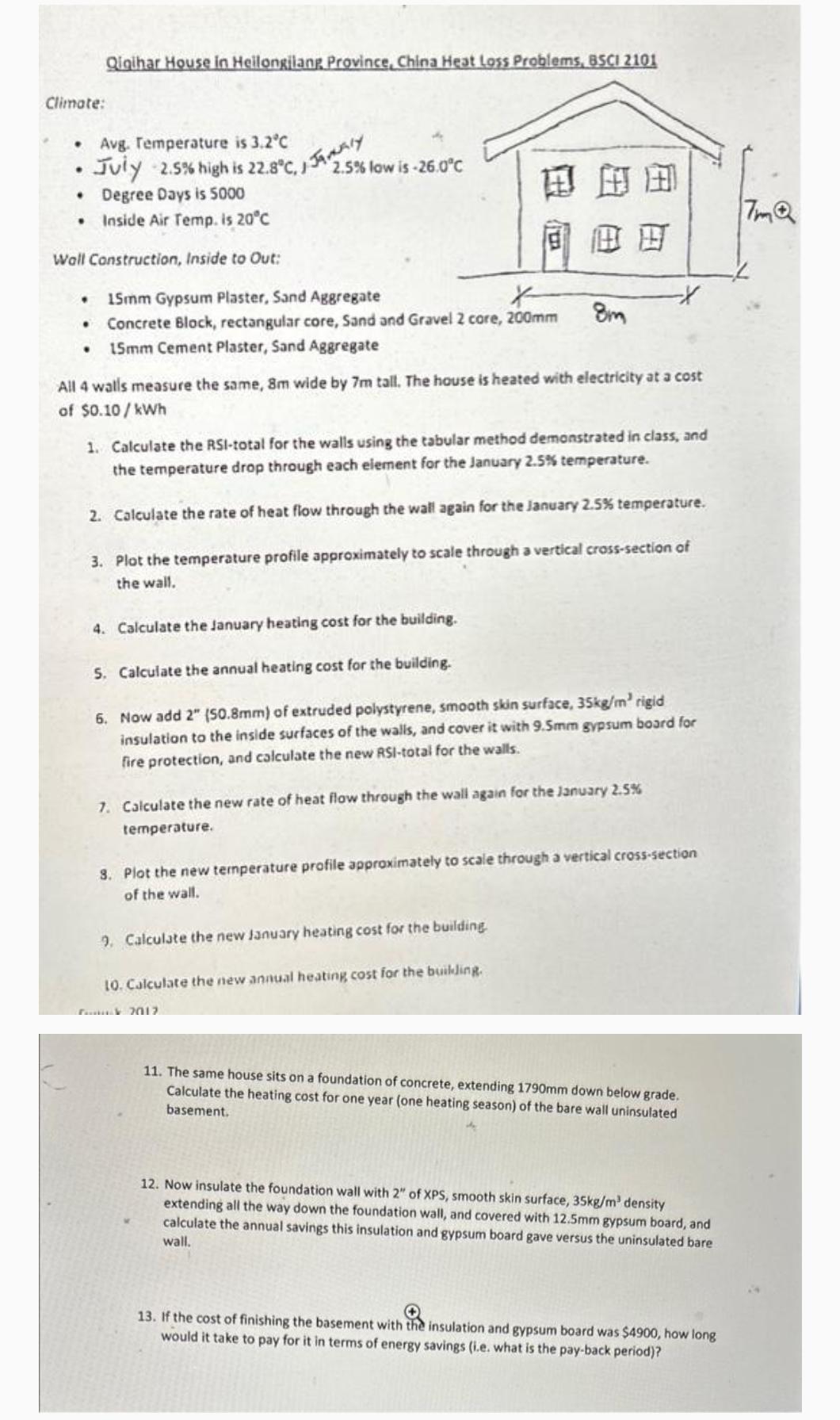Answered step by step
Verified Expert Solution
Question
1 Approved Answer
Climate: Qigihar House in Heilongjiang Province, China Heat Loss Problems, BSCI 2101 . Avg. Temperature is 3.2C July 2.5% high is 22.8C, J 2.5%

Climate: Qigihar House in Heilongjiang Province, China Heat Loss Problems, BSCI 2101 . Avg. Temperature is 3.2C July 2.5% high is 22.8C, J 2.5% low is-26.0C Degree Days is 5000 . Inside Air Temp. is 20C Wall Construction, Inside to Out: 7mQ . 15mm Gypsum Plaster, Sand Aggregate * . Concrete Block, rectangular core, Sand and Gravel 2 core, 200mm 8m . 15mm Cement Plaster, Sand Aggregate All 4 walls measure the same, 8m wide by 7m tall. The house is heated with electricity at a cost of $0.10/kWh 1. Calculate the RSI-total for the walls using the tabular method demonstrated in class, and the temperature drop through each element for the January 2.5% temperature. 2. Calculate the rate of heat flow through the wall again for the January 2.5% temperature. 3. Plot the temperature profile approximately to scale through a vertical cross-section of the wall. 4. Calculate the January heating cost for the building. 5. Calculate the annual heating cost for the building. 6. Now add 2" (50.8mm) of extruded polystyrene, smooth skin surface, 35kg/m rigid insulation to the inside surfaces of the walls, and cover it with 9.5mm gypsum board for fire protection, and calculate the new RSI-total for the walls. 7. Calculate the new rate of heat flow through the wall again for the January 2.5% temperature. 8. Plot the new temperature profile approximately to scale through a vertical cross-section of the wall. 9. Calculate the new January heating cost for the building 10. Calculate the new annual heating cost for the building. 2012 11. The same house sits on a foundation of concrete, extending 1790mm down below grade. Calculate the heating cost for one year (one heating season) of the bare wall uninsulated basement. 12. Now insulate the foundation wall with 2" of XPS, smooth skin surface, 35kg/m density extending all the way down the foundation wall, and covered with 12.5mm gypsum board, and calculate the annual savings this insulation and gypsum board gave versus the uninsulated bare wall. 13. If the cost of finishing the basement with the insulation and gypsum board was $4900, how long would it take to pay for it in terms of energy savings (i.e. what is the pay-back period)?
Step by Step Solution
There are 3 Steps involved in it
Step: 1

Get Instant Access to Expert-Tailored Solutions
See step-by-step solutions with expert insights and AI powered tools for academic success
Step: 2

Step: 3

Ace Your Homework with AI
Get the answers you need in no time with our AI-driven, step-by-step assistance
Get Started


